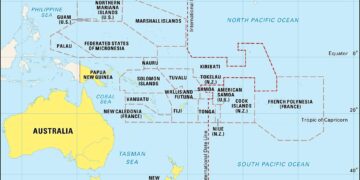Bridging Indigenous Wisdom and AI Innovation: Montreal’s Mila Institute Initiative
Montreal’s Mila Institute is pioneering a transformative program designed to connect Indigenous expertise with the rapidly advancing field of artificial intelligence (AI). This initiative aims to amplify Indigenous representation within the tech industry while empowering communities through education, mentorship, and collaborative research. As AI continues to influence diverse sectors globally—with the market projected to surpass $500 billion by 2024—the inclusion of Indigenous worldviews offers invaluable perspectives that can guide ethical and culturally sensitive AI development.
By weaving traditional knowledge systems into modern technological frameworks, Mila is fostering an environment where innovation respects cultural heritage. This approach not only addresses growing concerns about bias and inclusivity in AI but also ensures that emerging technologies serve a broader spectrum of society with fairness and respect.
Empowering Indigenous Communities Through Customized AI Education
The core objective of this initiative is to provide tailored resources that resonate with the unique cultural contexts of Indigenous peoples. Recognizing that one-size-fits-all solutions often overlook these nuances, Mila has developed programs focused on:
- Mentorship Networks: Connecting seasoned AI experts with Indigenous learners for personalized guidance.
- Interactive Workshops: Offering hands-on training centered on applications relevant to community needs such as environmental monitoring or language preservation.
- Collaborative Research Endeavors: Facilitating partnerships between academic researchers and Indigenous knowledge holders to co-create innovative solutions.
This multifaceted approach not only nurtures technical skills but also fosters confidence among participants, encouraging them to become leaders who integrate their heritage into future technological advancements.
Cultivating Tomorrow’s Leaders: Building Pathways for Indigenous Talent in AI
Mila’s commitment extends beyond education; it actively builds bridges between aspiring professionals and key stakeholders across academia, industry, and community organizations. The program includes internship placements within leading tech companies working on frontier AI projects—providing real-world experience essential for career growth in this competitive field.
- Skill-Building Workshops: Covering foundational concepts alongside emerging trends like explainable AI and ethical machine learning practices.
- Mentorship Circles: Creating supportive peer groups guided by experienced mentors who understand both technical challenges and cultural significance.
- Industry Internships: Offering immersive opportunities where participants contribute directly to impactful projects while gaining professional exposure.
This comprehensive framework ensures that new generations of Indigenous professionals are well-equipped not only technically but also culturally empowered—ready to influence how technology evolves globally while honoring their identities.
Strengthening Collaborations: Industry Partnerships & Knowledge Exchange
A vital component of Mila’s strategy involves fostering robust collaborations among diverse stakeholders committed to inclusive innovation. By hosting conferences, symposiums, and joint research initiatives focused on integrating indigenous insights into algorithmic design processes, the institute creates fertile ground for meaningful dialogue between technologists and community leaders alike. Key elements include:
- Diverse Mentorship Programs: Facilitating skill transfer through one-on-one engagement between established professionals and newcomers from underrepresented backgrounds.
- Thematic Workshops & Conferences: Showcasing case studies where indigenous perspectives have led to breakthroughs in areas like natural resource management or health diagnostics powered by AI models tuned for local contexts.
- Cultural-Tech Collaborative Projects: Encouraging co-development efforts blending ancestral knowledge with cutting-edge computational methods—for example, using machine learning algorithms trained on traditional ecological data sets collected over generations.
| Main Challenge | The Role of Indigenous Perspectives |
|---|---|
| Tackling Algorithmic Biases | Cultural context helps identify hidden prejudices embedded in datasets or model assumptions |
| Data Sovereignty & Ethics | Establishing frameworks ensuring respectful use aligned with community values |
| Addressing Employment Gaps | Promoting targeted recruitment strategies enhancing workplace diversity |
Conclusion: Paving the Way Toward Equitable & Culturally Attuned Artificial Intelligence
The Mila Institute’s visionary effort marks a pivotal advancement toward embedding diversity at the heart of artificial intelligence development. By centering indigenous voices—not merely as beneficiaries but as active contributors—the initiative promises richer innovation grounded in respect for cultural heritage alongside scientific rigor. As global conversations around responsible technology intensify—with UNESCO recently emphasizing inclusive digital futures—Mila’s work exemplifies how bridging tradition with technology can yield more just outcomes across societies worldwide.
Monitoring this program’s progress will be crucial as it unfolds its potential impact both within indigenous communities seeking empowerment through STEM fields—and across industries striving toward fairer algorithmic systems reflective of humanity’s full spectrum.
Ultimately, embracing such integrative approaches signals a future where artificial intelligence serves all people equitably—honoring diverse histories while driving forward collective progress in an increasingly digital age.















